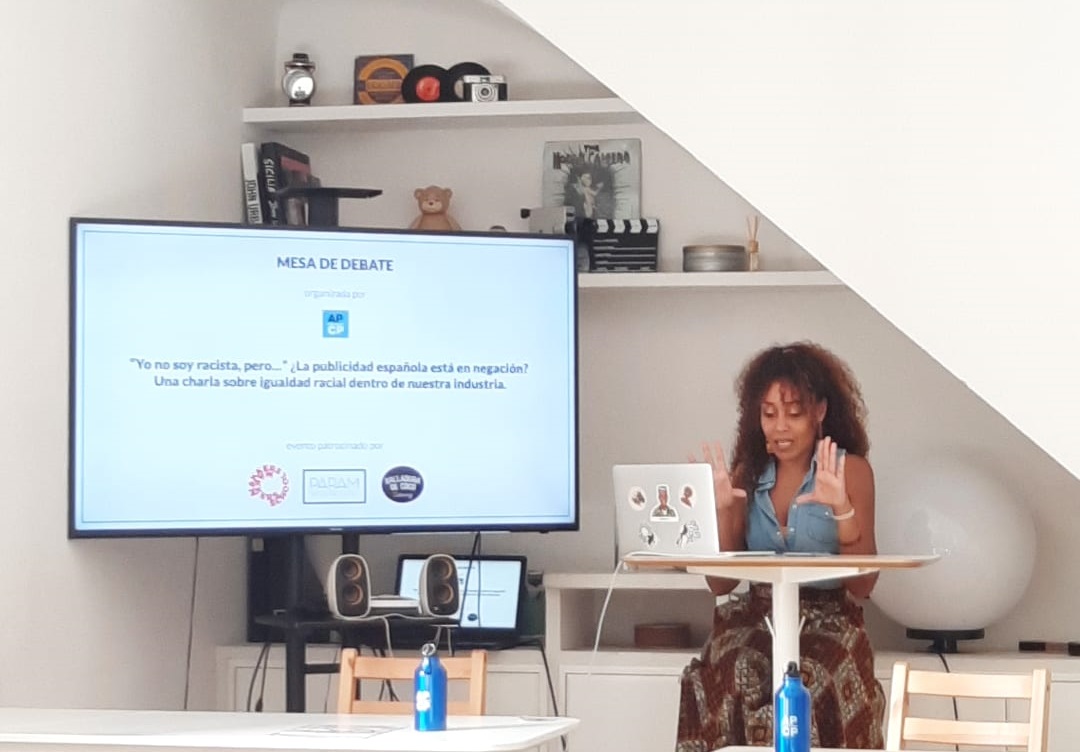
On Monday 17th May we organised with Lucía-Asué Mbomío Rubio in a talk entitled: “I’m not racist, but…” Is Spanish advertising in denial? A talk about racial equality within our industry.
An interesting journey through the different aspects that condition a person’s life derived from cultural preconceptions based on skin colour or ethnicity.
The event was sponsored by Makkers School, PARAM (Actors’ and Models’ Representative Agencies Platform) and Ralladura de Coco‘s catering.
Lucía-Asué Mbomío Rubio (Madrid, 1981) was the speaker for this talk. She holds a degree in Information Sciences (Universidad Complutense de Madrid), a diploma in Documentary Scriptwriting and Directing (Instituto de Cine de Madrid) and a Master’s degree in Development and International Aid (Instituto Complutense de Estudios Internacionales).
She has a long career in the world of communication, has written several books and collaborated in magazines and newspapers, directed and scripted documentaries and is working as a television reporter since 2005, in programmes such as “Madrid Directo”, “Españoles en el Mundo” and “El Método Gonzo”. She is currently a member of the staff of Spanish National TV Channel at the tv show “Aquí la Tierra”.
.
With immense simplicity she explained the factor of racism that is present in everyone’s life; because, as she affirmed, the problem with racism is that it’s understood as a moral problem when it’s a systemic problem. Understanding racism as something “moral” leads us to think of “bad” and “good” when instead the behaviour is based on the systems in which we have grown up. From that conception we need to be aware of our preconceived ideas in order to improve and unlearn the patterns, or at least question what we have learned.

Some of the journey that Lucía took us made us to reflect on the following:
- School: They tell us that all people are equal, but they don’t teach us about equality. We have a lack of role models.
- Bullying understood as “kid’s stuff”.
- School failure and academic orientation: “In Spain there are only 4% of foreigners (including Erasmus students) at university”.
- “Ghetto schools”
- Unique referents of black people: poor or rural and indigenous people.
- Asymmetric discourse: There is a single narrative. i.e: we don’t often see positive things about Africa in the media.
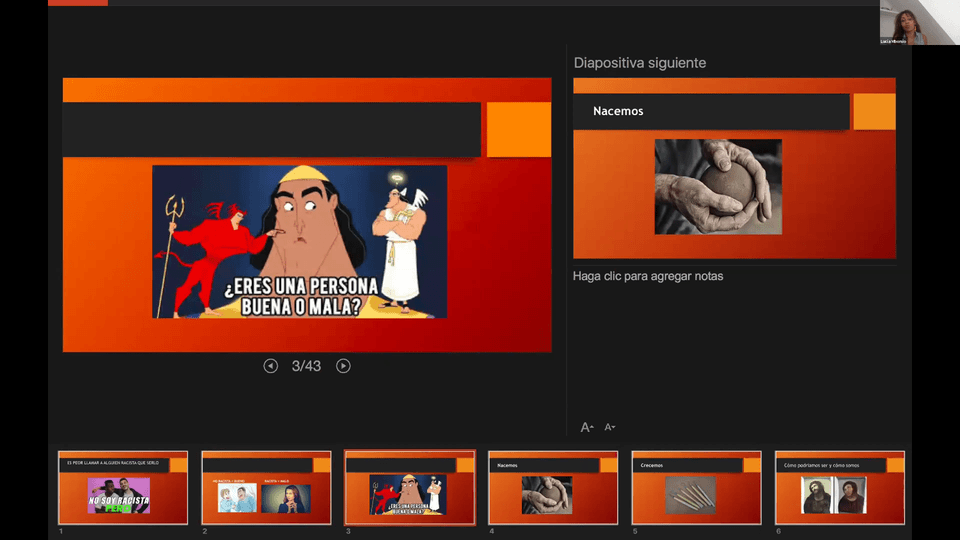
- Violence: explained by the example of Lucrecia Pérez.
- Racial profiling.
- Limitation of access to entertainment venues.
- Adolescence referents.
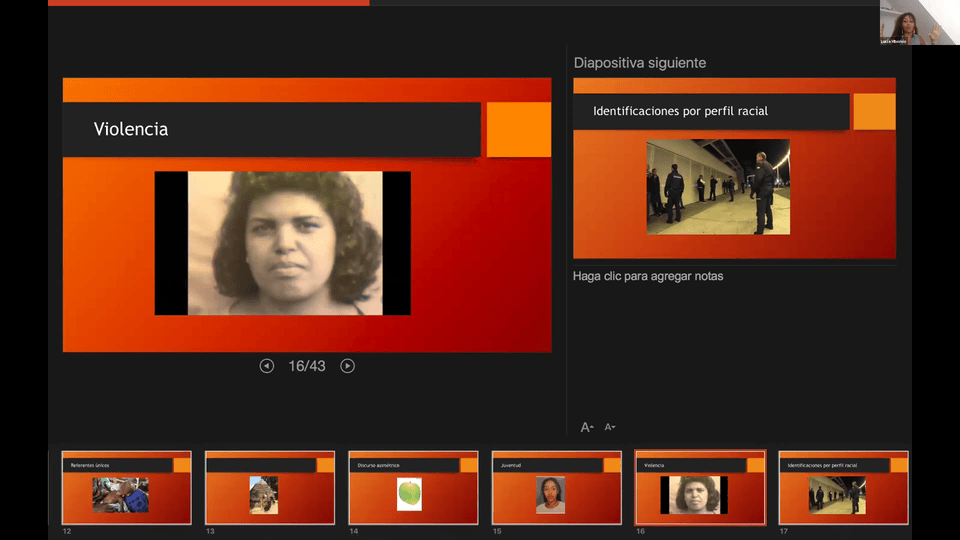
- Difficulty in accessing rent due to being identified as a foreigner.
- Referents of black people in adulthood: “It’s not the same to be recognised as a poor foreigner than as a rich foreigner”.
- How many non-white people do you work with?: “Visit the peripheries and you will see that people are not only white”.

- The representation of people in advertising according to different “races” or ethnicities.
“Races” in quotation marks because from a genetic point of view there are no differences but adaptations of the body to the environment. Black people are darker because they have more melanin to protect themselves from the sun. From there, everything else is a cultural construction.
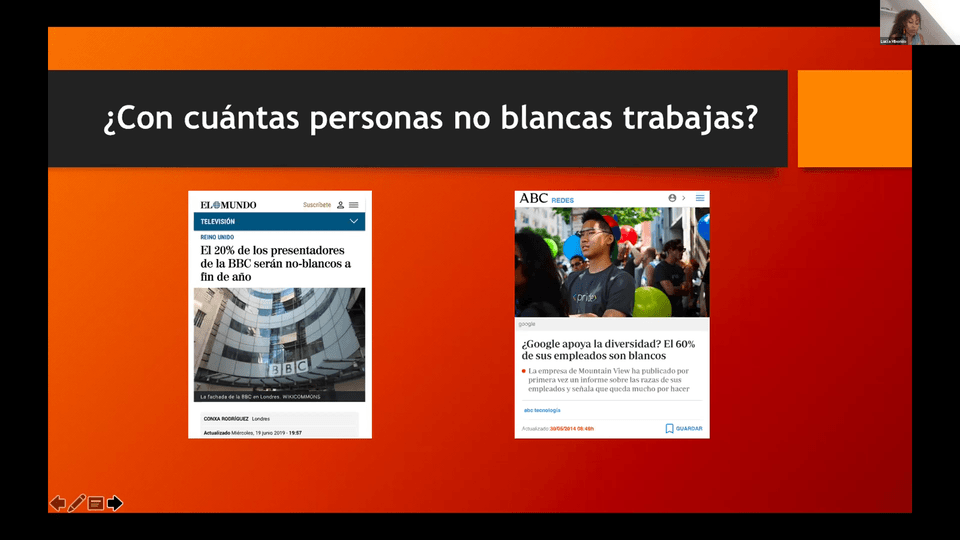
Good examples of actual Spanish commercials that normalise diversity were presented. As the aim is not to turn advertising into a Benetton ad in which you have to complete the picture with coloured pieces. The aim is to show diversity as a reflection of the reality that exists in the world, in Spain and in our society.


Examples of commercials that integrate the diversity of bodies, identities and colours as a factor of reality. Campaigns that do not seem “strange” to us when they appear on television, since it’s the same reality that we see on the street. What is strange is that we have become used to the fact that the real world does not appear on the screens; with the problem it takes for the youngest generations as they grow up looking at unique referents.
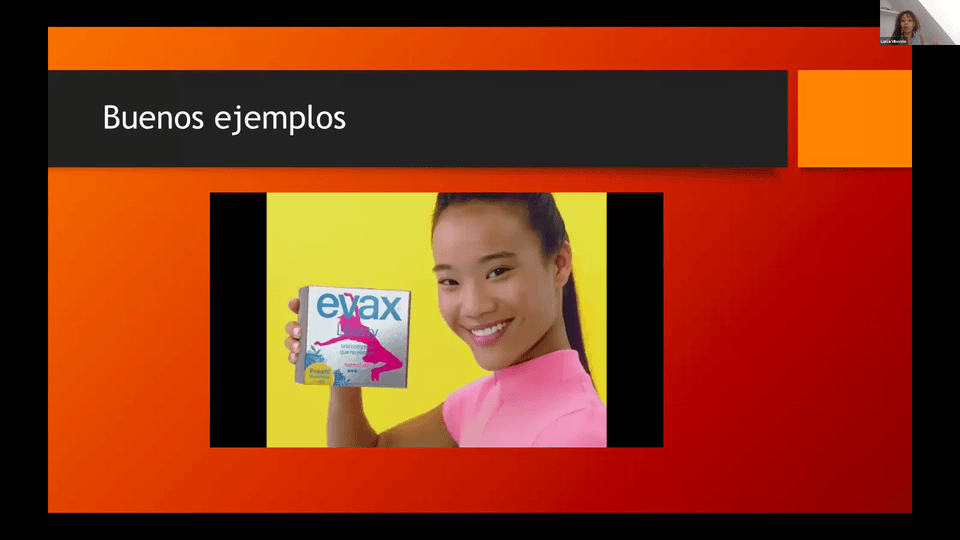
Desde APCP agradecemos a Lucía su tiempo y dedicación a este espacio de aprendizaje y debate compartido. Gracias también a los patrocinadores: “Plataforma Agencias Representantes de Actores y Modelos” y el catering de , que hicieron posible el desarrollo del evento.
From the APCP we would like to thank Lucía for her time and dedication to this space of shared learning and debate. Thanks also to the sponsors: Makkers School, PARAM (Actors’ and Models’ Representative Agencies Platform) and Ralladura de Coco‘s catering who made the event possible.




[…] In pursuit of this objective, on 17 May we organised together with Lucía-Asué Mbomío Rubio the talk entitled: “I am not a racist, but…” Is Spanish advertising in denial? A talk on racial equal… […]